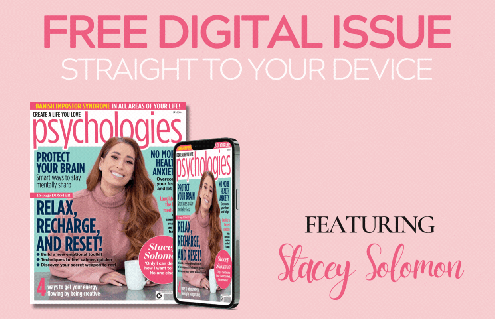Are you feeling RAW this January?
As we get back to work this month, many of us are not feeling very Ready, Able or Willing. Yet the key to living life to the full is prioritising self-care.

We are all guilty of paying scant attention to our health and wellbeing until something happens to remind us that we are vulnerable. Then we act to repair the damage done and, for a while, we will increase our efforts to stay well. Except the effort can feel like a punishment especially when we are bombarded with images of celebrity perfection. It is all too easy to be sucked into quick-fix diets and extreme workouts that promise miracles and deliver misery. Meantime, we have homes to run with family responsibilities and partners to care for. On top of this work can be all-consuming. Little wonder that when life gets busy, self-care is the first thing we sacrifice.
What if there was another way? One that helps you actively manage your wellbeing and enables you to flourish whatever life brings. There is, and it isn’t a secret. Let’s begin with an acknowledgement that wellbeing is not defined solely by the absence of illness. It includes a pure state of wellness which can be supported through practising regular self-care. Here is a four-point plan to improve your wellbeing which you might like to consider and then act to make your own:
1. Examine your attitude to self-care.
People often think that taking time for themselves in the middle of busy times seems indulgent. Yet looking after your wellbeing will make you happier, more productive and equip you to care for others. After all, you can’t pour from an empty cup. Incorporating self-care into your daily routine will enable you to flourish during the good times. It will also help build resilience to cope when life gets tough. Taking good care of yourself is not selfish: it is a necessity, not a luxury.
2. Identify your motivation.
You only get one mind and body, so you need to look after it throughout life. Over time many give up learning new skills, stop exercising or no longer seek fresh experiences. Professor Tom Kirkwood directs the Institute for Ageing and Health at Newcastle University. He is one of the world’s leading researchers into healthy ageing. His advice is “Don’t give in to fatalistic thinking about ageing. Thinking positively about your body’s journey through life, feeding it with care and putting it through its paces can work wonders. Being positive is great for mental health as well.”
Professor Kirkwood’s view is backed by research published by Age UK. This shows that genetics accounts only for about a quarter of what determines the length of life. This means that three-quarters are influenced by factors that are under individual control, such as nutrition and lifestyle. Therefore the steps you take today can secure long-term health benefits by promoting a strong immune system. This includes being physically active, developing a growth mindset by being open to new experiences, having a healthy diet, getting enough rest and being sociable – as social isolation causes stress, which lowers immunity. Knowing this can change everything. It is worth the effort to keep fit and well whatever stage you are in life.
3. Consciously choose to practise self-care.
People want to be safe, healthy, happy and successful in life. An unexpected boost of good fortune is always a pleasure. However what you achieve is usually down to determined effort and how hard you work at it. Why not consider managing your wellbeing in the same way? Prioritising self-care means paying attention to how you spend your time, handle your resources and maintain your environment. It also means noticing what is working well for you and using this to cultivate a positive mindset of appreciation. You can start with a self-audit. Here are ten vital questions to consider:
- What is working well for you in life?
- How can you build upon your self-care successes however small?
- What have you learnt from what hasn’t worked well?
- What ideas have you put off that could deal with what isn’t currently working?
- What steps are you taking to look after your mind as well as your body?
- Are you acting as if you are on your own side?
- What strengths do you have that if applied could make a difference in your life?
- How can you bolster stronger social connections with friends and family members?
- What is the one thing that you could do that would immediately improve your self-care?
- How would it feel if you acted upon the answers to these questions?
4. Implement practices that promote wellbeing every day.
Aim to engage your mind as well as your body. Maybe learn something new. It can be a sport, a language, an instrument or a game that creates a sense of achievement, self-confidence and resilience. Perhaps watch a TED talk or visit an art gallery or attend a lunchtime lecture on a subject that is out of your comfort zone. Test your motivation by asking yourself on a scale of one to ten how likely are you to stick at it? Aim for at least seven and then buddy up with someone who can learn alongside you.
Being active contributes to physical health and significantly reduces the likelihood of heart disease, diabetes and cancer. The benefits of being active are not limited to the body. Research indicates that a moderate amount of physical exercise on a regular basis – as little as 30 minutes five times a week – has a powerful effect in combating depression and anxiety. Plus, your brain works better after you move.
In his book Spark, Dr John Ratey shares how physical exercise actually speeds up the rate of neuronal growth, called neurogenesis. Since neurons are the cells that carry electrical impulses through the brain, growing them faster is a good thing. It is why exercise helps you think more clearly. Activity turns back time, creating a younger brain. Simply put, to increase the likelihood of enjoying physical and mental health, we need to move more. Enjoying the benefits of exercise does not require a radical change of lifestyle. Small changes to your routine can make a big difference. Here are some ideas to try:
- Choose to get off public transport earlier or park further away from your destination.
- Use the walk to practice mindfulness. You might also want to consider using apps like Calm, Headspace or Buddify
- Take up cycling, try hiking or go for a jog. There are lots of free resources via websites such as UKActive and Sustrans, which provides some great tips and ideas on how to move more
- Get outside and take a walk at lunchtime. Do this mindfully by observing what you see rather than staring at your phone
- Use the stairs instead of the lift. Walk up the escalators rather than passively ride.
Of course, nutrition is important too. The Eatwell Guide is provided by Public Health England and is a pictorial example of what to eat to meet your daily nutritional needs. The Guide shows the proportions in which different types of foods are required to achieve a well-balanced diet. Incorporating the guide into your self-care regime is a simple way of improving your diet. You can download the full Eatwell Guide from the NHS website. You might also want to try the Change4Life website, which provides some great recipes for healthy eating and has some useful Apps which are free of charge.
We all know what we need to do to stay fit and healthy, yet it is astonishing how few people apply them daily. The question is how RAW do you feel? Are you Ready, Able and Willing to make simple lifestyle changes that last? Do one thing today that contributes to your overall wellbeing and then do another tomorrow. Keep going until it becomes a habit. Then you can live your life to the full as a human being rather than settling to exist as a human doing.
Beverly Landais PCC
Certified Personal & Team Coach: enabling people to be at their resourceful best
We live in an ever-changing dynamic world. At best, this can be exhilarating and provide excellent opportunities for personal growth. At worst, it can be exhausting and stressful as you try to do it all, which can lead to the feeling that you are doing nothing well. Maybe you are in such a situation? Perhaps you have reached a point where you long to create the life that you want rather than the one that is happening? If so, I may be the right coach to support you. My purpose is simple. I work with people to help them be at their resourceful best. I bring all of my expertise to the service of my clients. My skill set includes 30 years of experience in business, including board level. As a Professional Certified Coach and Positive Psychology Practitioner, I can help you to think your options through, make better choices and do the things that promote wellbeing, bring personal as well as professional satisfaction and make you happy. I am particularly skilled in supporting those who are at a crossroads in their life. My coaching approach can help you gain a clear understanding of your values, motivators, drivers, strengths and consider the impact of blind spots – and what you can do to mitigate these. I work via video calls, by phone and email. Should you wish to arrange a 30-minute complimentary discovery session, please contact me via connect@beverlylandais.co.uk


